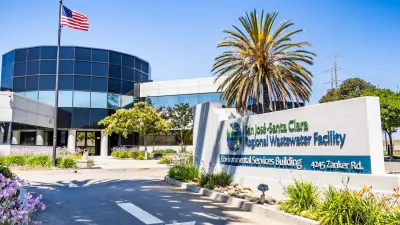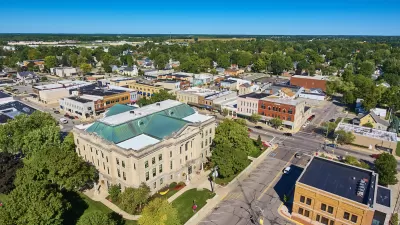A new report from the NRDC and Move LA documents the implementation of California's landmark SB 375, the nation’s first law to link transportation and land use planning with greenhouse gas emissions.
Kaid Benfield traces the history of the pioneering legislation, which was passed in 2008 with contributions and support "from a diverse collection of commercial, real estate, government, housing and environmental interests [including the NRDC]," and provides a summary of the progress made in implementing the law over the past four years, as outlined in the report.
"Today," says Benfield, "the law is being implemented: three of California's four
largest major metropolitan regions – Southern California, Sacramento,
and San Diego – have adopted their plans, called sustainable communities
strategies, technically parts of their transportation plans..."
"The report finds much to praise in the new plans:
'As intended by SB 375, each region created its own tailored mix
of land use decisions, transportation investments, and policies to
achieve its target. These sustainable community strategies lay the
foundation for smarter, more efficient growth and much healthier
communities, while setting a high benchmark for the rest of California's
regions."'
The report, titled The Bold Plans for California Communities, doesn't just look backwards, as Benfield notes, it "includes a number of policy recommendations to help ensure effective implementation of the new community strategies."
FULL STORY: How California is planning growth for a prosperous economy and clean environment

Maui's Vacation Rental Debate Turns Ugly
Verbal attacks, misinformation campaigns and fistfights plague a high-stakes debate to convert thousands of vacation rentals into long-term housing.

Planetizen Federal Action Tracker
A weekly monitor of how Trump’s orders and actions are impacting planners and planning in America.

In Urban Planning, AI Prompting Could be the New Design Thinking
Creativity has long been key to great urban design. What if we see AI as our new creative partner?

King County Supportive Housing Program Offers Hope for Unhoused Residents
The county is taking a ‘Housing First’ approach that prioritizes getting people into housing, then offering wraparound supportive services.

Researchers Use AI to Get Clearer Picture of US Housing
Analysts are using artificial intelligence to supercharge their research by allowing them to comb through data faster. Though these AI tools can be error prone, they save time and housing researchers are optimistic about the future.

Making Shared Micromobility More Inclusive
Cities and shared mobility system operators can do more to include people with disabilities in planning and operations, per a new report.
Urban Design for Planners 1: Software Tools
This six-course series explores essential urban design concepts using open source software and equips planners with the tools they need to participate fully in the urban design process.
Planning for Universal Design
Learn the tools for implementing Universal Design in planning regulations.
planning NEXT
Appalachian Highlands Housing Partners
Mpact (founded as Rail~Volution)
City of Camden Redevelopment Agency
City of Astoria
City of Portland
City of Laramie




























